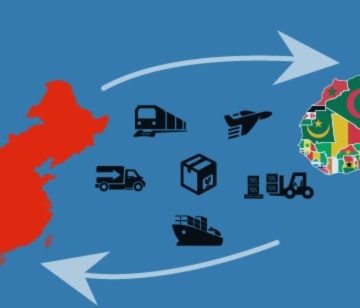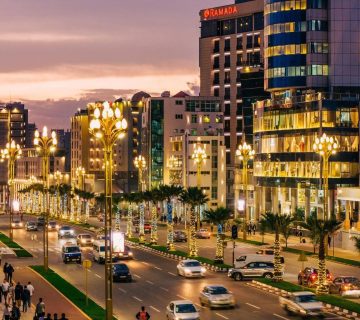The summit of the heads of state of the East African Community (EAC) on June 6, 2023 in Bujumbura, Burundi, adopted a report on the verification of Somalia’s application to join the EAC. It is now evident that Somalia is keen on joining Kenya, Uganda, Rwanda, Burundi, South Sudan, Tanzania, and the most recent member, the Democratic Republic of Congo, in the EAC. The verification mission was conducted in Mogadishu by senior officials from member states from January 25 to February 3, 2023. The EAC is a common market intergovernmental organization that was first formed in 1967, it dissolved ten years after but re-established in 1999. Somalia previously showed an interest in joining the EAC in 2012, but this application was turned down. Both applications have been initiated by President Hassan Sheikh Mohamud, who assumed office for the second time in May 2022 as the 10th president having served as the 8th president of the country previously. Somalia faces significant challenges on security, economy, and governance, and one of its foremost concerns is the persistent threat posed by the militant group al Shabab.
The Path to the Community
As indicated, Somalia first applied to join the community in 2012 but was rejected on the basis that it did not meet the basic requirements for membership as stated in Article 3(3) of the treaty of the establishment of the EAC, which includes universally acceptable principles of good governance and rule of law, potential contributions to the strengthening of integration within the community, and having social and economic policies compatible with those of the community. At the time, the country was riddled with piracy, terrorism, inter-clan conflicts, and protracted instability. The current administration, with the help of other actors, is trying to bring about some positive changes. For instance, the Somali government launched a vicious fight against al Shabab rather than its usual defensive stance. By expressing its desire to rejoin the East African Community (EAC) in 2022, Somalia has demonstrated its keenness to engage in regional affairs and its eagerness to become a member of the community. The Somali president has emphasized that gaining admission into the EAC has long been an aspirational goal for both the government and the people of Somalia. The EAC is also eager to admit the country, as the general secretary of the EAC stated that they will handle problems arising from Somalia within the EAC framework, showing willingness and support to admit the country despite its shortcomings.
Implications: For Better or Worse
Somalia’s prospective membership in the EAC is expected to bring about a mixture of positive and negative effects. Somalia will be a boost to the region’s blue economy. According to the EAC secretary general, Peter Mathuki, considering that Somalia has the longest coastline and is home to various species of fish of immense value, connecting the East African region to the Arabian Peninsula through the Gulf of Aden, will create a thriving economic region. Moreover, the country is now in better condition as it has improved to some extent its security environment, including piracy in the Indian Ocean. Over the past two decades, the Indian Ocean has been dangerous and riddled with piracy. However, the International Maritime Organization has since removed it from the high-risk area list, indicating that it is safe for maritime trade. Even with these new developments, the country would contribute 2 per cent of the community’s total output (which is the total value of goods and services produced in a country), which is not much, indicating that the blue economy is not yet thriving in the country.
On the flipside, the EAC is concerned about Somalia’s admission because it will ensure the free flow of people, goods, and services, which will open the member state’s borders to al Shabab, which is seen as a significant threat. With their most recent attack killing 54 Ugandan African Union peacekeepers in Mogadishu. There is concern that these security risks will spread across the region, implying that the insecurities in Somalia will have a spillover effect in the region, and navigating this could prove a challenge for the community, with some viewing this admission as ‘unnecessary’ and a mistake as the country is still deemed a fragile state.
Divided opinion
Contrary to official government claims, it appears that some Somalis are not so keen on seeing their country join the EAC, arguing that joining the community will be disadvantageous to Somalis, leading to loss of employment opportunities, free movement of people and goods leading to exploitation as the country has weak structural institutions, and an attack on the country’s sovereignty, language, and religion. Additionally, unlike the Democratic Republic of Congo, with a population of 95,890,000 million, Somalia lacks in terms of population, with a population of 16,359,500. Population is key to economic integration, which includes human migration, the exchange of services and goods, the movement of capital, and the integration of economic markets.
The way forward
The EAC should take a strategic approach to addressing insecurity issues in order to maximize economic gains upon Somalia’s admission. Establishing deliberate partnerships that aim to curb insecurity issues with other key actors like the Intergovernmental Authority on Development (IGAD). An example of a strategic partnership is the memorandum of understanding signed between IGAD and the Inter-University Council for East Africa to produce a harmonized education, qualification system, and training system in the Horn of Africa and East African region.
Somalia, through initiatives like the Somali National Development Plan 2020-2024, is concentrating on focal institutions that are needed for effective integration. By focusing on the four main pillars of the development plan which include improved security and rule of law, inclusive and accountable politics, improved social development and inclusive economic growth; it shows that Somalia is working on strengthening different institutions necessary for integration. This will make interregional trade, innovation, and collaboration easier. Strong institutions will ensure the country benefits from regional integration.
Rahma Aidid is a Research Intern at the HORN International Institute of Strategic Studies
Photo: Delegates during the official launch of EAC verification mission to assess Somalia’s readiness to join the Community – East African Community Headquarters, Arusha, Tanzania, January 25, 2023 (Photo Credit: KaabTV/EAC)
The contents of this article are copyright of © The HORN Institute 2022. All rights reserved. Any redistribution or reproduction of part or all of the contents in any form and for whatever reason is prohibited. You may use the content of this article for personal reasons, but acknowledge the author and cite the website as sources of the material.



